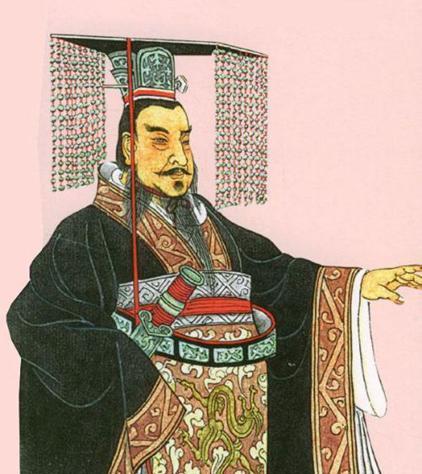The Ming Dynasty's Enlightenment thinker Li Zhen commented on Qin Shi Huang: "The first emperor, since he was an emperor through the ages." In 221 BC, Qin Shi Huang pacified the six kingdoms to unify the world, the whole country implemented "the same book, the same car on the same track", the implementation of the county system, he did these things also played a role in the present world, Li Zhen's evaluation, Qin Shi Huang he can afford. Qin Shi Huang unified the world and just became the king, it was inevitable that he had some pride in his heart, thinking that he was "the third emperor of virtue and the five emperors of Gonggai", so he created the title of "emperor" as a title for others, and Qin Shi Huang became the first emperor in Chinese history.

Others call the head of a country the emperor, so how does the emperor himself call himself? There are many self-titles of the emperor, such as "lonely", "widow", "I", etc., but the most impressive thing for modern people is "朕". The word "朕" is also related to Qin Shi Huang, who ordered that "朕" be used exclusively by the emperor.
The previous rulers of the Qin Dynasty called themselves "lonely" and "widowed", indicating that they were humble and sat on an equal footing with the people below, but Qin Shi Huang deliberately opened up the status of superiors and subordinates, and in order to reflect his supreme status and power, he designated "朕" as the emperor's special word. Among the thousands of Chinese characters, Qin Shi Huang only chose "朕" and did not choose other words to call himself, which also had his own reasons.
The oracle bone "朕" is taken apart as a "boat" and "灷", "boat" is well understood, is the meaning of the boat, "灷" is the meaning of fire, in ancient times, people through drilling wood to get the fire source, but did not think of what method to use again to ignite the extinguished fire, preservation of the fire source has become a very important thing, such an important thing will of course be handed over to the most important person in the tribe, he has lofty power.
Xun Zi once said: "Water carries boats, and water covers boats." This sentence compares the relationship between the monarch and the people to the boat on the water, the people can make you the emperor, but also make you not the emperor, and the fire seed in addition to the symbolic meaning of the lofty power, can also illuminate the darkness, the "boat" and "Hao" combined is that the water can carry the boat, and the fire on the boat will not make people lose their way, this is the original intention of Qin Shi Huang.
Before Qin Shi Huang issued a regulation, "朕" was an ordinary self-proclaimed word that everyone could use, and Qu Yuan also said straight to the point in "Leaving the Troubles": "Emperor Gaoyang's Miao descendants, Emperor Gaoyang's Miao descendants, Emperor Gao's examination of Boyong." After Qin Shi Huang issued the regulations, others dared to use it to commit the following major crimes, the light suffered from flesh and skin, and the heavy ones killed their heads.
Although Qin Shi Huang stipulated that "朕" was used exclusively for the emperor, he was still not accustomed to using "朕" verbally, and used "Wu" more often, and only wrote "朕" in writing. Emperors during the Tang and Song dynasties were more accustomed to using the word "朕", both written and oral, and only occasionally used "wu". The centralization of power by the emperors of the Qing Dynasty reached its peak, and the use of "朕" was more frequent than in all previous dynasties, and no one dared to use the word offside.
In 1912, the Qing Dynasty fell, Puyi became the last emperor, and "朕" finally became a common self-proclaimed word in the pre-Qin period. It's just that after so many years of history, every time you see this word, you can't help but think back to thousands of years of feudal dynasties, and few people in ordinary life call it themselves.